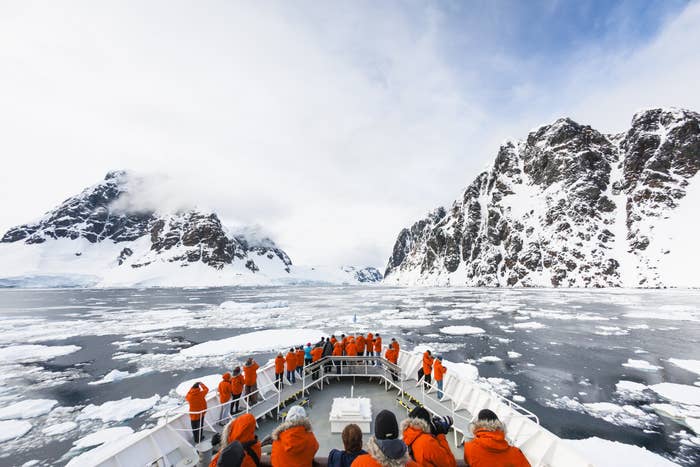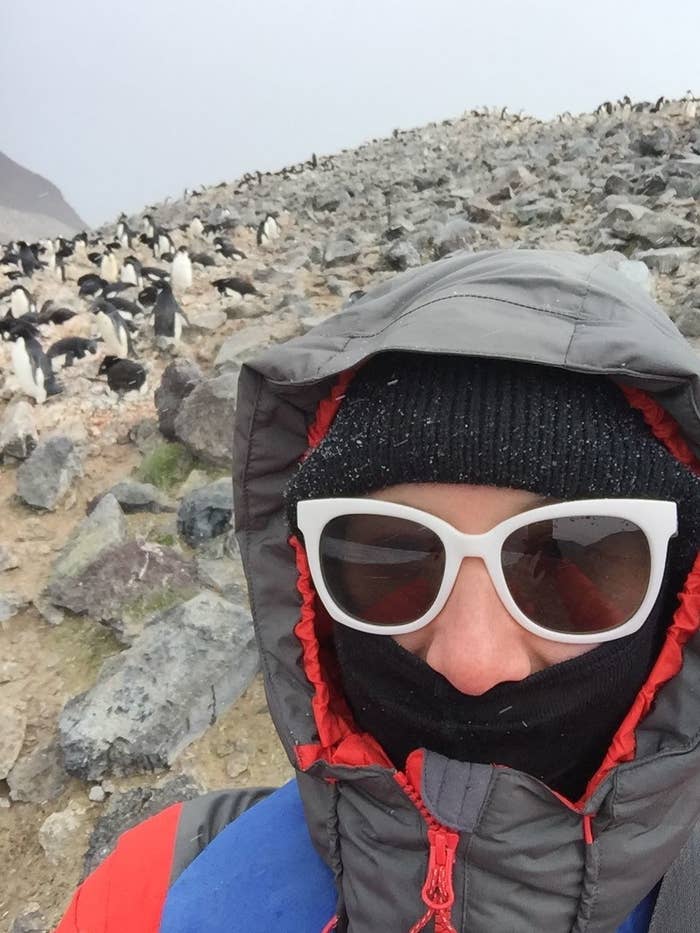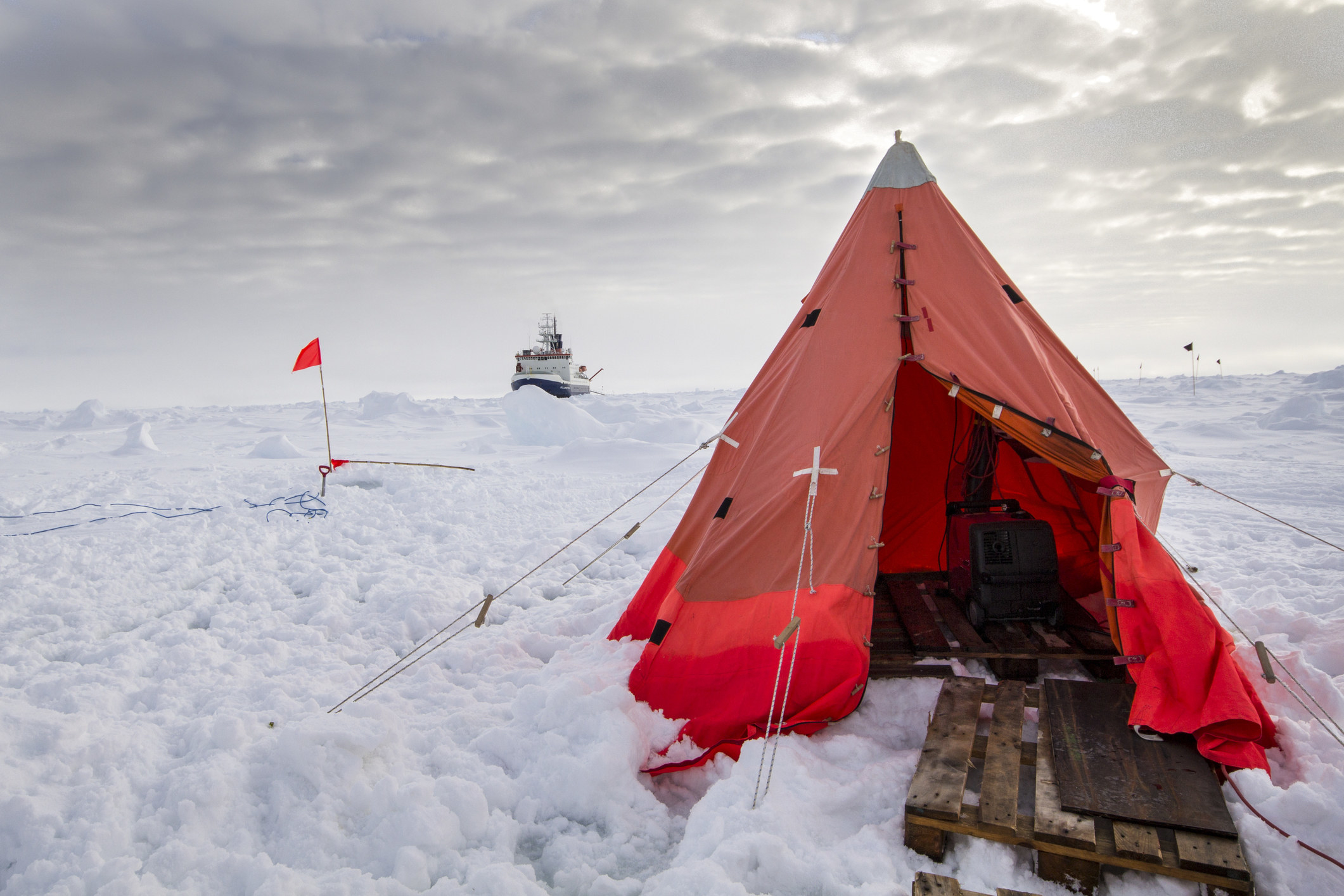
Women scientists face enough barriers to conducting polar research in Antartica, says professor Meredith Nash — the clothing is ill-fitting and managing menstruation discreetly is near impossible.
"It is a place set up for white men," Nash told BuzzFeed News.
But it is also a uniquely isolated and intimate workplace to navigate sexual harassment.
"There are a lot of really difficult power dynamics because if you're out in the field for say six weeks, you can't leave and it is really hard to report," she said. "You're supposed to report it to the station leader, but what if he's the one who harassed you?"
Nash co-authored a 2019 study that found 63% of women who travelled to Antarctica with the Australian national program said they had been sexually harassed during fieldwork, and that much of it had occurred when they were postgraduates or field assistants. Sexual harassment by supervisors was particularly difficult for PHD students to report, she said.
"It is a really small field, so that person is basically in charge of your professional life: they will write references, they will connect you to jobs, you will see them at conferences," she said. "This affects your ability to get funding and further field work, your access to mentoring, all the things you need as a junior researcher."
Of those that experienced harassment, 49.5% of survey respondents took no action.
"People who complain often become the location of the problem rather than a victim to be helped," Nash said. "At the moment, the response seems to be 'well if this happens women can't go down south anymore'."
Boston University last year fired geologist David Marchant 18 months after he was accused of harassing women at remote Antarctic field camps. But on Tuesday Nash presented a paper at the University of Melbourne arguing although Marchant's case has been cited as evidence #MeToo has already changed Antarctic science for the better, "it is problematic to focus on individual cases at the expense of the wider culture".
"All of the things that women and other marginalised groups contribute are lost as a result of the fact that we can't keep them safe," she said. "This happens in polar research, it happens in mining, it happens in archeology, it happens anytime women are put in remote, isolated settings."
Nash wants better pre-deployment expedition preparation (alongside the staples of first aid and wilderness survival), which encourages fieldworkers to "be self-reflexive" about how their race, gender, sexuality and class could contribute to "comfort and discomfort" in certain settings.
"For instance, the experience of living in close quarters where white heterosexual men predominate and without the possibility of exit is one that comes up regularly in the stories of fieldwork from women and other marginalised groups," the paper notes.
Nearly 60% of early career polar researchers are women. Women in science, technology, engineering, mathematics and medicine (STEMM) are 3.5 times more likely than men to experience sexual harassment during fieldwork.

The paper's co-author, Dr Hanne Nielsen, said it shouldn't be up to individual women in polar research to come forward and say "this happened to me" to make change.
“It is a case of saying ‘how do we make sure that this is an inclusive and safe workplace for people of any gender, ability and background?’" Nielsen told BuzzFeed News.
Nielsen noted the Australian Antarctic Division didn't allow women to stay on research stations until the 1980s. “We have colleagues who couldn’t do their fieldwork at the start of their career,” she said.
She has spent time in Antarctica as a postgraduate student and a tour guide.
"When people hear the word 'Antarctic' the things that come to mind are either pictures of penguins or those heroic explorers battling against the blizzard like Douglas Mawson or Ernest Shackleton," she said. "It doesn’t represent the diversity of people down there and there are many women in Antarctica doing amazing things."
Nielsen, a former president of the Association of Polar Early Career Scientists (APECS), said the power dynamics that play out in any workplace sexual harassment scenario are "heightened" in Antarctica.
"Getting access to this remote environment is tightly controlled, you’re in an often small field team where the research leader holds a lot of power, and if you’re a PHD student you’re reliant on your supervisor for mentoring and funding," she said. "We’ve been finding that a lot of [sexual harassment] isn’t reported and then when it is, it brings up issues because to talk about this can be to become the location of the problem — it can be a good way to ensure you never go back on fieldwork again."

Antarctic marine biologist Dr Narissa Bax, who co-authored the 2019 study, said the lack of job security in science also negatively impacts how victims of sexual harassment or assault seek justice.
"The decision to report, speak up, press charges is often weighted against a person's desire to focus and direct their energy into their scientific passion," Bax told BuzzFeed News. "Although call out culture is more common, justice for those who are victimised or whose research capacity is marginalised is not and it remains a complex issue to navigate."
When Bax looks back on her expeditions she can see instances that "could be defined as harassment" but nothing that has left her anxious, or eclipsed the positive memories she has of working in Antarctica.
Bax's first four Antarctic field-based projects were led by women, but she said a lot of talented scientists, disproportionately women, dropped out of the field due to a lack of career opportunities.
"Students often volunteer their time to work at sea, as I did across my PhD," she said. "The incentive is the priceless experience of working in Antarctica. It is worth it, but it is not sustainable to volunteer your time long-term, and when you lose the title of student, you shouldn’t have to sacrifice fieldwork as a result."
She wants to see leadership positions diversify in terms of gender and race alongside a financial investment in science to provide longer-term job security and "empower those at vulnerable career stages".
In recent years Bax has endeavoured to speak out against inappropriate behaviour and to support programs that support women in science.
"Women are speaking up, and in ways that we have to in order to advocate for what we care about," she said.
